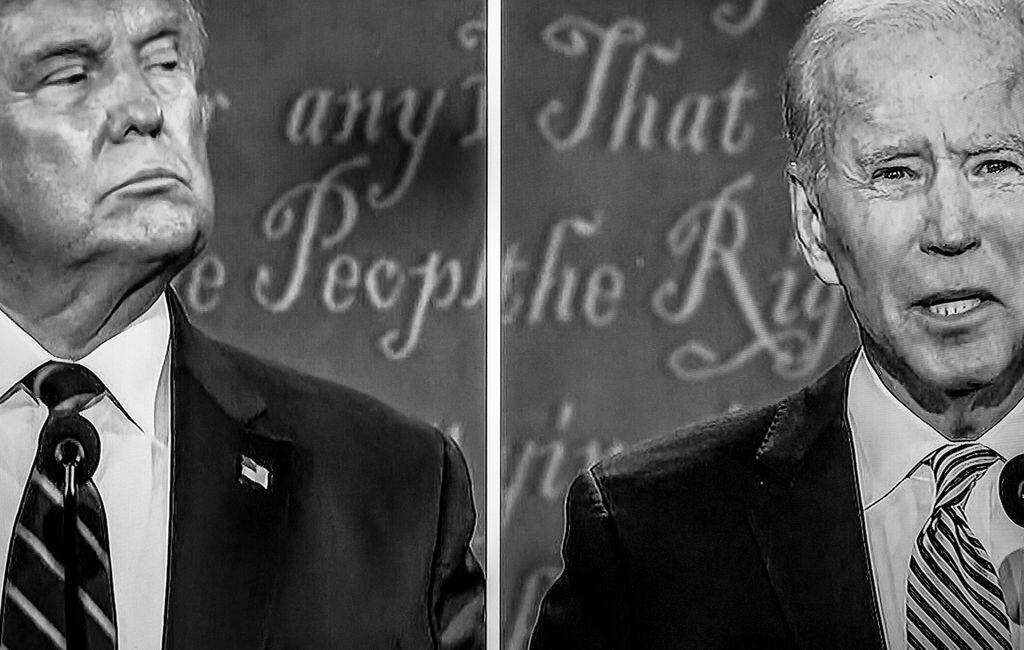America’s Long-Standing Isolationism Is Resurfacing
Imagine if, one day, the president of the United States said this to allied leaders of Europe, Asia, and the Middle East and withdrew U.S. troops. How would the world change? Some people would be happy to see the tyranny of American imperialism end. However, even for these people, there is a huge chance that certain situations would unfold that would completely disappoint them.
Power abhors a vacuum. America’s competitors would fill the void left by the U.S. In Europe, in Russia; in China in East Asia, and Iran in the Middle East. If these countries that have ignored democracy and human rights become regional hegemonies, their authoritarian political systems will gradually spread to neighboring countries.
However, the serious issue is that current international politics are moving in the same direction, and the upcoming presidential election in November will mark a decisive turning point. To illustrate, the Republican Party has blocked $610 billion worth of aid to Ukraine set aside by the Biden administration. If presidential candidate Donald J. Trump is elected and takes office, he has stated clearly that he will immediately pull out of Ukraine. In the meantime, the war would unfold in Russia’s favor.
If this comes to pass, and there is a cease-fire, and the occupied territories concede to Russia, it would be a substantial victory for President Vladimir Putin. U.S. leadership, which has sought to maintain the international liberal order, would suffer a huge blow, and within four or five years, Russia would target the Baltic countries that NATO has struggled to defend strategically. Without the United States, NATO countries will find it difficult to respond, and a NATO collapse would slowly suck Europe into Russia’s sphere of influence.
The effect of a Russian victory in Ukraine would quickly spread to the East Asian continent. Cooperation between China and Russia would grow stronger, and upon sensing a weakened American will, China would grow more decisive about Taiwan. If China invaded Taiwan, would Trump’s America be willing to go to war with China to protect Taiwan? Not likely.
The most urgent issue for South Korea is North Korea. Even if none of above scenarios takes place, North Korea, which has been strengthening military cooperation with Russia since last October, will grow even more confident. There would be a much greater possibility of misjudgment and of detecting a weakened American will to extend deterrence. Thus, American isolationism, the Ukraine war and the protection of South Korea are all connected.
Will America move toward isolationism? The history of American isolationism is much older than international diplomacy. Since the United States was founded in 1776, apart from the Spanish War in 1898 and World War I, America was consistently isolationist until the attack on Pearl Harbor on Dec. 7, 1941. In his farewell address, President George Washington asserted that America should refrain from alliances with any foreign country and remain neutral. Because the U.S. is insulated by the geographic barriers of the Atlantic and Pacific oceans, it has believed it could live well enough alone without the need to get involved in the affairs of other countries. Neither the Spanish War nor the decision to enter World War I was very popular. The aftermath of World War I saw further isolationism, peaking at the outset of 1940. Then, as now, the “America First” movement took off across the nation. President Franklin Roosevelt remained unmoved and ignored Winston Churchill’s pleas for intervention even when the Nazis occupied Czechoslovakia, Poland, Denmark, Norway and France. Roosevelt acted only when Japan attacked Pearl Harbor.
The isolationism that has remained hidden below the surface of American diplomacy is slowly emerging. However, American isolationists are ignoring the boomerang effect that isolation will bring. Washington said, “The great rule of conduct for the U.S. in regard to foreign nations is in extending our commercial relations, to have with them as little political connection as possible.” That was possible then, but it’s a completely different world now. If America washes its hands of other continents, political and economic chaos will grow as authoritarian countries seize power in their regions, leading to damaging economic hostility toward the United States. Even with the 10% blanket import tariff that Trump insisted on, target countries will certainly retaliate. In the vacuum of global leadership, countries deliberating on their own about issues including global warming, pandemics, immigration, among others will cause serious damage to the United States, just as it did for two to three years during the COVID-19 pandemic.
Notwithstanding all this and because the tendency of the times is rage, Trump’s approval rating is high. The rarely excitable British Economist recently blamed Democratic leaders for being as cowardly as Republicans under the sway of Trump, asserting that Democrats failed to stop their 81-year-old candidate from running in an election when they needed to prevent Trump’s election at any cost.
What should Korea do in these turbulent times? It could explore several steps, but the top priority is integration. Citizens and political leaders must challenge Cold War ideology, camp logic, factional fighting and division. Division prevents the integration of people’s energy and will, making it impossible to respond quickly, strategically, and diplomatically. The Joseon dynasty was destroyed because it could not overcome troubling times like these. One such experience is enough.
Yoon Young-kwan is chairman of Asan Institute for Policy Studies and former Minister of Foreign Affairs and Trade.

:quality(70)/cloudfront-eu-central-1.images.arcpublishing.com/irishtimes/5RUEGHQYZD7OBNKZUM5L7O2LLY.jpg)
